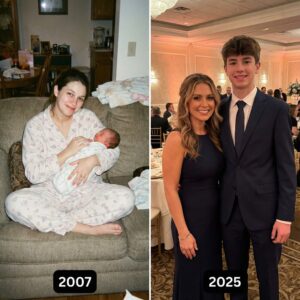Hannah’s wedding day was supposed to be the happiest of her life. But when her fiancé’s “special family tradition” was revealed at the altar, everything changed.
Luke had proposed in February under fairy lights and falling snow. After three years together, Hannah said “yes” without hesitation. As they planned their June wedding, Luke insisted on handling invitations and venue details himself, hinting at a family tradition he wouldn’t fully explain.
On the morning of the wedding, everything felt perfect—until Hannah arrived at the church. Inside, the chapel was filled wall to wall with men. Her father, male relatives, groomsmen, and even the officiant were present—but not a single woman.
“Where’s my mom? My sister?” she whispered. Luke avoided her gaze. His father calmly explained that, in their family tradition, only men attend the ceremony while the women gather separately. He showed her photos of brides standing alone among men. Luke had wanted it to be a “surprise.”
Stunned, Hannah stepped outside and called her mom—who was confused, waiting at a distant reception hall with other women. Hannah’s father urged her not to “throw everything away over a tradition.” But as the wedding march played, she froze halfway down the aisle.
“I can’t do this,” she said, her voice echoing through the silent church. Luke pleaded, embarrassed, but Hannah turned and walked out without looking back.
She went to the women’s reception still in her gown. The room fell silent as she entered. “I chose the right wedding,” she told her tearful mother, embracing her. She toasted the women in the room: “To choosing love over tradition, and truth over comfort.” Applause erupted—real and raw.
That night, with her mom and sister, she laughed over champagne and pizza, no regrets. The next morning, she posted:
“I didn’t get married yesterday. I reclaimed my voice instead. And I have no regrets.”





